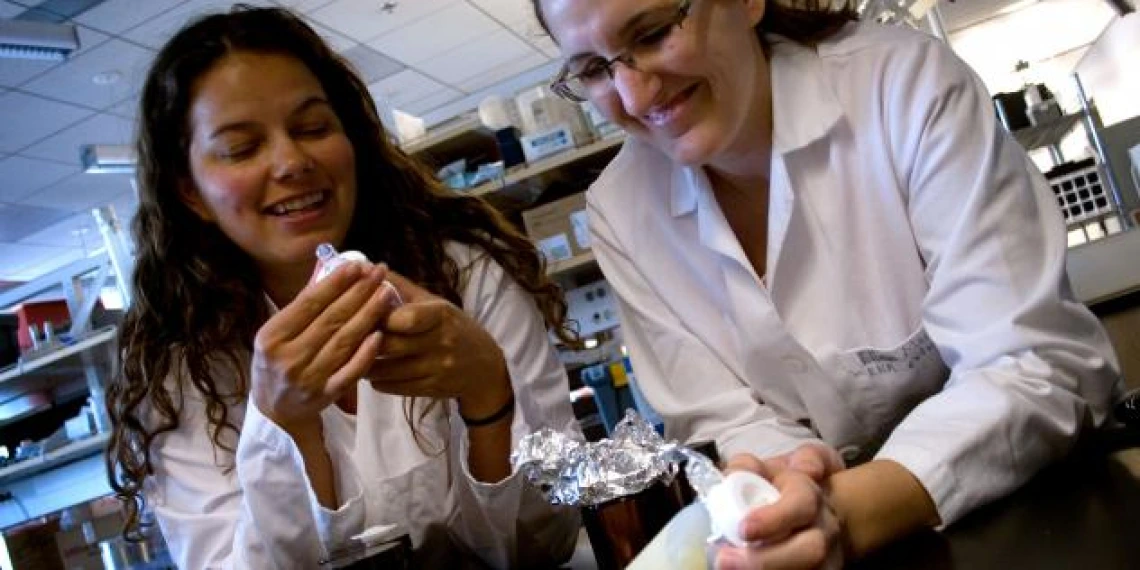A good year for UA SRP researcher Dr. Paloma Beamer!

 University of Arizona Superfund Research Program (UA SRP) and Dean Carter Binational Center for Environmental Health Science researcher Dr. Paloma Beamer had a busy 2011! Dr. Beamer is an environmental engineer and holds an Assistant Professorship of Environmental Health Sciences in the Mel and Enid Zuckerman College of Public Health and in Chemical and Environmental Engineering.
University of Arizona Superfund Research Program (UA SRP) and Dean Carter Binational Center for Environmental Health Science researcher Dr. Paloma Beamer had a busy 2011! Dr. Beamer is an environmental engineer and holds an Assistant Professorship of Environmental Health Sciences in the Mel and Enid Zuckerman College of Public Health and in Chemical and Environmental Engineering.
Dr. Beamer was recently awarded a Mentored Quantitative Research Career Development Award (K25) from the National Heart, Lung and Blood Institute (NHLBI). The grant provides more than $666,000 over 5 years, for her project, “Relating Diesel Exhaust Exposure to Respiratory and Immune Outcomes in Early Life.” The pilot study that provided impetus for this research was featured in the Arizona Daily Star. The expanded study will ask whether exposure to diesel-related pollutants as an infant results in alterations of the immune and respiratory systems that could result in early childhood wheezing or development of asthma. Dr. Beamer will use the findings from this proposal to engineer intervention strategies that can then be tested in community settings and hopefully help reduce the burden of wheezing in childhood. She will work under the mentorship of a team of established researchers, including UA SRP and Binational Center collaborator Dr. Fernando Martinez, and UA SRP researcher Dr. Eric Betterton. This award will establish Dr. Beamer as a researcher at the interface of environmental engineering and epidemiology, and position her to design and evaluate novel interventions aimed at reducing the burden of respiratory disease from environmental exposures.
 Dr. Beamer is also part of a research team recently awarded funding from the UA Water Sustainability Program, the Institute of the Environment, and the Renewable Energy network. The project, "Risk perception, drinking water source and quality in a low-income Latino community along the US- Mexico Border" will examine patterns of water consumption in Nogales, AZ. When performing a previous study in the area, Dr. Beamer noted that many low-income families were purchasing bottled water for drinking and cooking, due to perceptions about poor tap water quality. With her colleagues, she will help determine whether tap water is safe to drink, and provide recommendations to families, that could save money and reduce waste. The study was also featured on KOLD News Tucson and the UA ADVANCE Newsletter.
Dr. Beamer is also part of a research team recently awarded funding from the UA Water Sustainability Program, the Institute of the Environment, and the Renewable Energy network. The project, "Risk perception, drinking water source and quality in a low-income Latino community along the US- Mexico Border" will examine patterns of water consumption in Nogales, AZ. When performing a previous study in the area, Dr. Beamer noted that many low-income families were purchasing bottled water for drinking and cooking, due to perceptions about poor tap water quality. With her colleagues, she will help determine whether tap water is safe to drink, and provide recommendations to families, that could save money and reduce waste. The study was also featured on KOLD News Tucson and the UA ADVANCE Newsletter.
 As a co-author on two important manuscripts investigating the ingestion of soil and dust from hand-to-mouth and object-to-mouth contact in children, Dr. Beamer was recently honored by the US Environmental Protection Agency (EPA) with the 2010 Scientific and Technological Achievement Award Level I. This award honors high-quality research that has broad, national significance. The manuscripts analyzed data from existing studies to develop recommended values for the number of times children place their hands (Xue, et al. 2007) or other objects (Xue, et al. 2010) in their mouths for estimating exposure. "The information is important for a number of reasons," says Beamer. “In order to know how much a hazardous waste site needs to be cleaned up, you need to be able to estimate the amount of soil or dust a child may ingest. Pesticide registration requires that companies estimate a child's exposure, for example if they were to play on a lawn treated with pesticides. And now with more recent legislation regarding plastics and lead in children's toys, companies need to be able to estimate children's exposures from mouthing those toys."
As a co-author on two important manuscripts investigating the ingestion of soil and dust from hand-to-mouth and object-to-mouth contact in children, Dr. Beamer was recently honored by the US Environmental Protection Agency (EPA) with the 2010 Scientific and Technological Achievement Award Level I. This award honors high-quality research that has broad, national significance. The manuscripts analyzed data from existing studies to develop recommended values for the number of times children place their hands (Xue, et al. 2007) or other objects (Xue, et al. 2010) in their mouths for estimating exposure. "The information is important for a number of reasons," says Beamer. “In order to know how much a hazardous waste site needs to be cleaned up, you need to be able to estimate the amount of soil or dust a child may ingest. Pesticide registration requires that companies estimate a child's exposure, for example if they were to play on a lawn treated with pesticides. And now with more recent legislation regarding plastics and lead in children's toys, companies need to be able to estimate children's exposures from mouthing those toys."
Congratulations on all of your accomplishments, Paloma – and keep up the good work!

